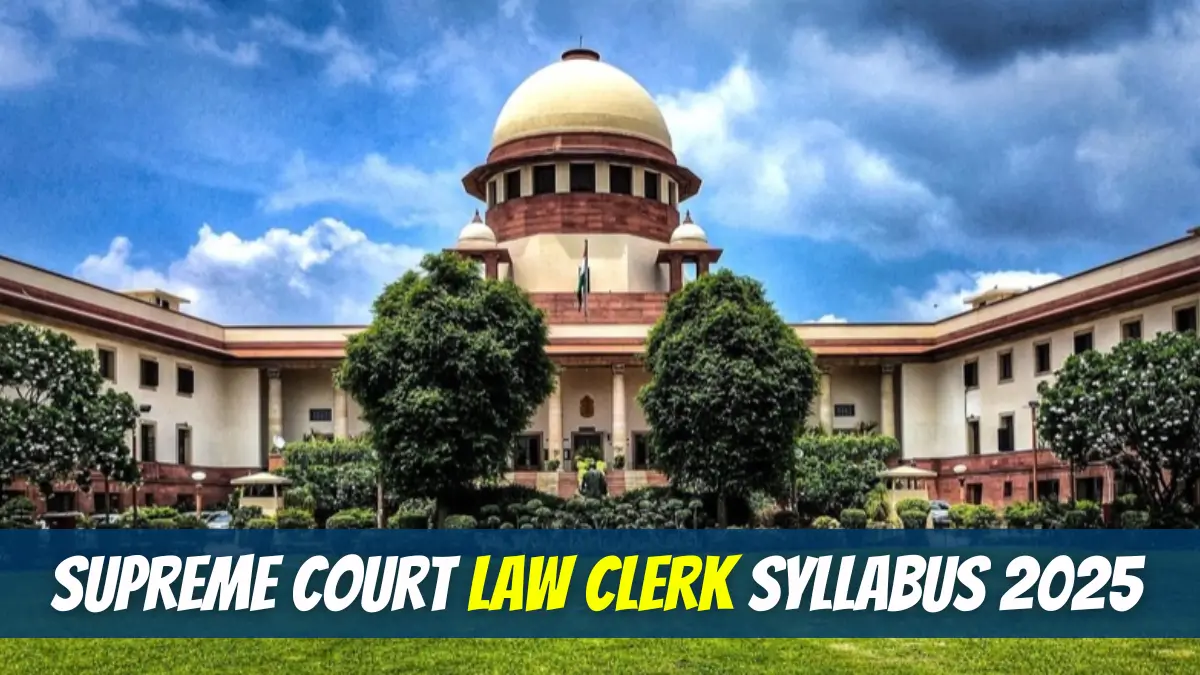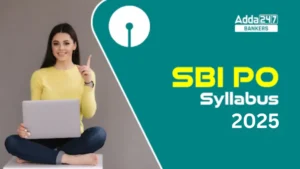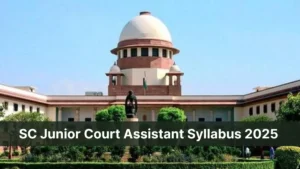Table of Contents
The exam date for the Supreme Court Law Clerk Exam 2025 is out and is scheduled for 9 March 2025 so there is very little time left for the exam. The Supreme Court Law Clerk Syllabus 2025 and Exam Pattern is given below to follow a structured syllabus and exam pattern perfect for your exam consisting of multiple choice questions, a subjective written test, and an interview. Candidates can refer to the article below for a detailed overview of the Supreme Court Law Clerk syllabus and exam pattern to strategize their preparation and excel in the selection process.
Supreme Court Law Clerk Syllabus 2025 and Exam Pattern
The Supreme Court Law Clerk Syllabus and Exam Pattern 2025 are essential for candidates to effectively prepare for the upcoming examination. It is crucial for candidates to thoroughly review both the exam pattern and syllabus to ensure they cover all important sections and topics while preparing for the Supreme Court Law Clerk Exam 2025. The Supreme Court Law Clerk syllabus covers various law-related topics while the exam pattern outlines the number of questions, marks distribution, and time allocation.
Supreme Court Law Clerk Exam Pattern 2025
The Supreme Court Law Clerk Exam 2025 will be divided into two sections. The first section will include Multiple Choice Questions (MCQs) designed to test candidates’ legal knowledge, application skills, and comprehension abilities. The second section will be a Subjective Written Examination, aimed at assessing candidates’ analytical and writing proficiency.
| Part | Details | Marks | Duration | Mode |
| Part I | Multiple Choice Questions (MCQs) covering comprehension, legal aptitude, and recent developments in law | 100 | 2.5 hours |
OMR Sheet / Online / Hybrid
|
| Part II | Subjective Written Examination, including case synopsis, research memo, and analytical essay | 300 | 3.5 hours (incl. 30 min reading) |
Physical / Online / Hybrid
|
| Part III | Interview focusing on aptitude, legal knowledge, and communication skills | – | As per schedule |
In-person/Online
|
Supreme Court Law Clerk Syllabus 2025
The Supreme Court Law Clerk Syllabus 2025 serves as a detailed guide for candidates preparing for the exam. It includes various topics that evaluate legal knowledge, comprehension, writing skills, and analytical abilities. A clear understanding of the syllabus is essential for candidates to excel in both Part I (multiple choice questions) and Part II (subjective written test). Following the syllabus will help candidates strengthen their preparation and improve their chances of success in the selection process.
Part I: Multiple Choice Questions (MCQs)
The MCQ section will test candidates on three main areas: Reading Comprehension, Analytical and Legal Aptitude, and Recent Developments in Law.
Reading Comprehension: This section will include English passages followed by objective questions that assess candidates’ ability to understand, interpret, and analyze the content.
Analytical and Legal Aptitude: Questions in this section will test the candidates’ understanding of fundamental laws, their ability to analyze legal principles, and apply them to given scenarios. Key areas include:
Constitution of India: Preamble, Fundamental Rights, Directive Principles of State Policy, Parliamentary Procedures, and Judiciary provisions.
- Criminal Procedure Code (CrPC): Arrest procedures, bail, different stages of trial, appeals, and revision.
- Civil Procedure Code (CPC): Jurisdiction, the structure of suits, decrees, appeals, and other procedural aspects of civil law.
- Indian Penal Code (IPC): General exceptions, offenses against the human body (e.g., murder, assault), property offenses (e.g., theft, robbery), and offenses against public tranquility.
- Indian Evidence Act: Relevance and admissibility of evidence, burden of proof, presumptions, and examination of witnesses.
- Indian Contract Act: Essentials of a valid contract, offer and acceptance, consideration, breach of contract, and remedies.
- Recent Developments in Law: This segment will cover key judgments, legal updates, and developments in law and jurisprudence over the last year, particularly focusing on Supreme Court and High Court rulings.
Part II: Subjective Written Examination
The written examination will focus on assessing the candidate’s legal reasoning, drafting, and analytical skills through three types of questions:
Case Synopsis (100 Marks): Candidates will be provided with a case file, such as a Special Leave Petition, Civil/Criminal Appeal, or Writ Petition. They will be required to prepare a 750-word concise summary covering key facts, legal issues, the ratio of the decision, and grounds for appeal. Evaluation will focus on the ability to identify relevant details, structure the synopsis logically, and maintain brevity.
Research Memo (75 Marks): A brief factual dispute along with relevant statutes and precedents will be given. Candidates must prepare a 500-750 word reasoned memo analyzing the dispute while excluding irrelevant information. The memo will be judged based on the effective use of legal sources, precise language, thorough analysis of facts, and logical reasoning.
Analytical Essay (75 Marks): Candidates will write one analytical essay (350-500 words) from a choice of five topics. This question will test their ability to present arguments coherently, support them with appropriate examples, and maintain proper grammar and structure.
Selection Process of Supreme Court Law Clerk 2025
The selection process for the Supreme Court Law Clerk 2025 will consist of three phases:
- Part I: Multiple Choice Based Questions to evaluate candidates’ understanding and application of the law, along with their comprehension skills.
- Part II: Subjective Written Examination to assess writing proficiency and analytical abilities.
- Part III: Interview to determine the overall suitability of candidates for the role.
Detailed information about the exam pattern, minimum qualifying standards, and terms of the contractual assignment is provided in the “Scheme of Engaging Law Clerk-cum-Research Associates on Short-Term Contractual Assignment in the Supreme Court of India-January 2024,” available on the official website at www.sci.gov.in.




 IBPS SO Syllabus & Exam Pattern 2025...
IBPS SO Syllabus & Exam Pattern 2025...
 SBI PO Syllabus 2025 for Prelims and Mai...
SBI PO Syllabus 2025 for Prelims and Mai...
 Supreme Court Junior Court Assistant Syl...
Supreme Court Junior Court Assistant Syl...





